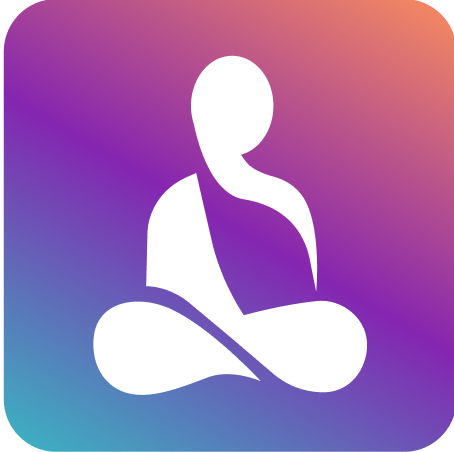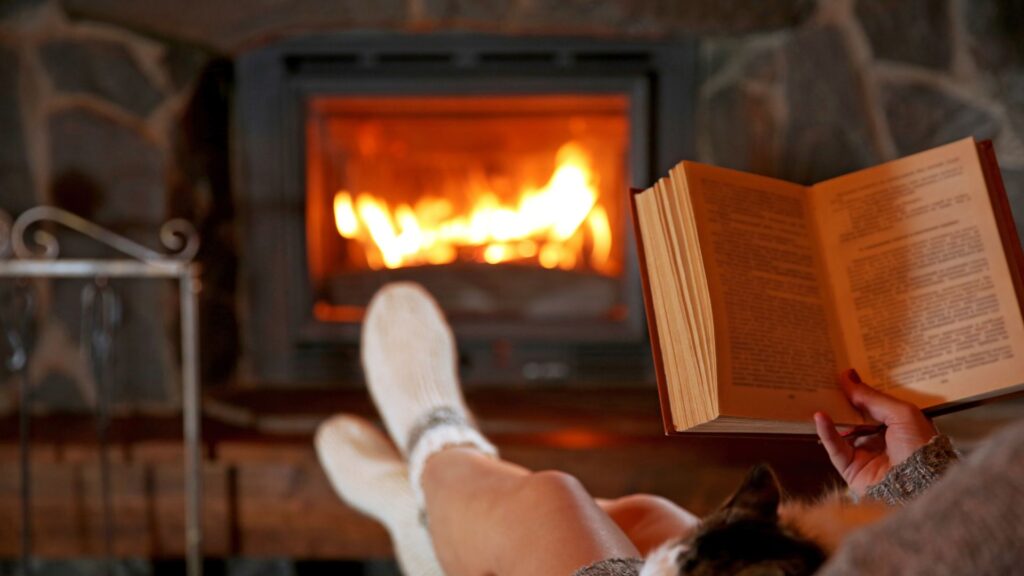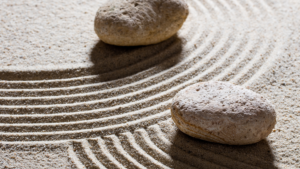Imagine seeing someone lying in a hammock. Perhaps the scene is a beach or a wooded backyard. Seems pretty relaxing, right? But what if the person reclined in the hammock is ruminating on all the stressful situations in their life—at work, with finances, with family, and more? Relaxing the body is one thing; relaxing the mind is quite another. Relaxing the mind and body simultaneously—now that’s a tall order!
In this day and age when we’re often, without realizing it, on alert for the next incoming text, DM, post, email, call, or news report. Being “on” all the time like this leaves our nervous systems hyperactive at best. Over time, this high level of activation can begin to take a physiological toll, causing a range of effects, including anxiety, dizziness, headaches, digestive issues, irritation, trouble sleeping, difficulty concentrating, and inability to relax.
While relaxation can seem like a “frill” or an “extra”, research studies show time and again that the opposite of relaxation—stress—is one of the biggest contributors to ill health. For instance, according to Yale Medicine, chronic stress can lead to diseases like heart disease, hypertension, obesity, metabolic syndrome, Type 2 Diabetes, and arthritis.
On the other hand, relaxation has been shown to improve both health and happiness along with preventing chronic diseases. This blog is all about understanding more about relaxation and how it can benefit you!
What Does It Mean to Relax?
“Relaxation” is a word we hear all the time, but what exactly is it? Relaxation is often defined as being free from tension and anxiety—or being immersed in a pleasant and soothing activity.
In fact, a study at Harvard-affiliated Massachusetts General Hospital showed that relaxation-response techniques like meditation and yoga could reduce the need for healthcare services by 43 percent.
With this in mind, how relaxed would you say you generally are on a scale of 1 to 10?
If the thought of relaxing makes you uneasy, don’t worry, you’re not alone. Researchers have found that in cultures with strong work ethics where productivity is prized, it’s not uncommon for people to have “relaxation anxiety” or “relaxation sensitivity” where they feel bored, guilty, or uncomfortable when they try to slow down and do something pleasant.
We’re excited to share some tips to help you counteract “relaxation anxiety”—and to help you relax more!
Reconnecting with Your Relaxed Self
Bring to mind periods of your life when you were more relaxed than you are now. As you do this, reflect upon some especially sweet and rejuvenating moments of relaxation, reliving them in all their peace and joy as you reminisce about them! Consider: What would it take to tap into some of the factors that helped you relax in an earlier time?
Assessing with Awareness
Next, take some time to consider what helps you to relax most, such as listening to a certain type of music, taking a hot bath, going to a yoga class, or something else. Think about how often you practice these techniques. Consider also: What encourages you—or deters you—to practice them?
Setting Inspirational Intentions
While it may take some time to get used to the idea, being intentional about upping the relaxation factor in your life is not only okay but can be life-changing—in the most positive of ways!
Consider for a moment how your life might change if you paused at the start of every day to make an intention—either in your mind or in writing—to have a relaxed day. Of course, this doesn’t mean an unproductive day! Imagine what your life would look like if you accomplished the needed tasks in a more relaxed fashion, along with a much more relaxed feeling inside.
Then, set an intention for how you’d like to boost the relaxation factor in your life, such as “I choose to embrace today with a relaxed mind” or “I welcome a more relaxed approach to life by committing to at least one act of self-care each day” or “I choose to be both focused and relaxed today as I complete my tasks with ease.”
Creating Helpful Reminders
Give yourself a boost on your relaxation revamp by setting an hourly reminder on your phone that says something like “Take a slow, relaxing breath” or “Enjoy a few minutes of relaxation!” Chances are, you’ll not only be more productive, but happier, too!
Exploring New Paths
On that note, consider: What are some relaxation techniques you’ve heard of and would like to try? The paths to relaxation are many, and what works for one person may not work for another. Other lovely relaxation methods you may wish to try include massage, Reiki, marma, acupuncture, and yoga nidra.
Discovering Journaling’s Portal of Peace
Journaling is an easy-to-access relaxation tool that doesn’t cost a cent. To sample how amazingly relaxing journaling can be, take a few moments to give it a try. You can do this on paper or digitally, whatever you prefer.
Make a list of relaxing places you have enjoyed. Choose one that’s nearby and one that’s far away. For instance, the nearby place might be a certain part of your home or apartment, a grassy field, a favorite bench, or perhaps a local cafe. The relaxing place far away could be somewhere you once lived, visited, or vacationed, or someplace that simply captures your imagination with its beauty and charm.
Then write for several minutes about each of these places, bringing in details of imagery, texture, sound, and how you felt—both physically and emotionally— when you were there last.
It’s surprising how relaxing it can be to journal about a place you find extremely relaxing—or even to revisit it in your mind!
You can also use daily journaling as a safe place to vent and to turn down the volume on your internal stress and mind chatter.
Listening to Tranquil Music
Listening to music that you enjoy is another relaxation technique that’s easy and readily available. Listening to the frequencies of birdsong, for instance, has been shown to promote relaxation.
Additionally, listening to music, according to researchers at Stanford University, seems to be able to even change brain functioning, making it a great stress-reduction tool.
There’s a vast range of tranquil music that can transport you to a more peaceful realm. East Indian stringed instruments, for instance, can be especially relaxing, as well as the sounds of drums and flutes. Recordings of the natural sounds of rain or waves can be very soothing as well. Choose whatever works best for you!
Many people also find sound baths to be incredibly peaceful. A sound bath is literally being immersed, or bathed, in lovely sounds, such as those from singing bowls, often in a group setting where participants are resting on the ground.
As you listen to music in the coming days and weeks, reflect on how the different styles and genres of music make you feel. Then, sample, if you like, our lovely relaxing music collection on the Innergy app which you can find by choosing the explorer tab at the bottom of the screen—and then scrolling through the circular icons at the top all the way to the right until you see “Music”!
Sample the many options of meditation music, binaural sounds, sleep music, and ambient music to your heart’s delight!
Finding Your Flow through Exercise
Some of the most relaxing forms of exercise include yoga, Tai chi, Qigong, going for a walk, and swimming. In general, exercise has been found to release the feel-good neurotransmitters called endorphins and protect your body from the negative effects of stress, as well as improve your mood. Perhaps that’s why exercise is sometimes called “meditation in motion”!
Sometime this week, rate your level of relaxation both before and after you exercise—and compare. Sometimes switching your style of exercise or exercising with reduced intensity is all that’s needed to maximize exercise’s relaxing effects.
To explore a sample of fitness routines in the Innergy app, go to the Explore tab at the bottom of the app home screen, click on the circular fitness icon at the top, and choose from a wide range of yoga, cardio, dance, and stretching routines. If you have kiddos, we have plenty of yoga videos designed especially for them, too!
Enjoying Time in Nature
Boosting your relaxation doesn’t mean, though, that you have to break a sweat. Researchers have found that simply spending time in nature can be incredibly therapeutic in reducing stress levels and promoting relaxation. In fact, research from the U.S. Department of Agriculture reports that people living near parks and green space have less mental distress.
While you can certainly combine exercise with being outdoors, such as going for a hike, a swim, or a bicycle ride, you can also glean relaxation benefits by simply having a picnic outdoors, reading beneath a shady tree, playing with your dog outside, birdwatching, or just feeling the grass beneath your bare feet, breathing in the fresh air, or feeling the warmth of the sun on your skin.
Eating with Awareness
Eating with awareness is another great way to support relaxation. Sometimes the way we eat can impede our ability to relax, like if the levels of caffeine or sugars are too high. Doing some self-monitoring by logging your intake of these two items—and then comparing your findings to daily recommended amounts—can guide you toward a more relaxation-supportive path. Moving toward a plant-based diet can help as well. Check out the nutrition section of the Innergy app with its collection of over 700 nutritious and delicious recipes for an added boost of inspiration!
Enjoying Hobbies
Giving yourself a chance to enjoy hobbies is another wonderful way to enter into a relaxed state. Hobbies can encompass enjoyable creative, athletic, and intellectual activities that you look forward to in your leisure time. It could be anything from gardening to singing to taking long walks to solving puzzles to baking—and more.
Engaging in activities that bring a sense of happiness can improve your physical and mental health. In fact, the stress-reduction factor of hobbies has been found to lower the levels of the stress hormone cortisol in your body. Given the mind-body connection, taking part in leisure activities has also been found to reduce blood pressure and body mass index (BMI).
As a bonus, if your hobby involves interacting with others, such as volunteering, joining a sports team, or playing in a music ensemble, you also gain the benefits of socializing, like building your communication skills and meeting new friends, as well diminishing the significant potential of loneliness-induced health risks, such as obesity and depression. Additionally, if your hobby involves gaining new skills like knitting or wood crafting, you’ll gain the added joy of being able to share your new creative projects with others.
Entering the Serenity of Meditating
Did you know that for thousands of years a tried-and-true method of relaxing is meditating? Meditation has been shown to help the mind and body recalibrate to a more serene state. By triggering this relaxation response, the body is able to better repair itself from the damaging physical effects of stress.
How does this work? Meditation, over time, begins to quiet many of your stress-inducing thoughts; this, in turn, prevents some of the stress responses in the physical body.
As you practice meditation more, you begin to become not just more relaxed but more resilient as well, recovering from stressors more quickly and experiencing less stress from daily challenges.
According to the Mayo Clinic, in addition to helping you manage your stress, meditation helps you be more creative and patient, improves your sleep. and lowers both your resting blood pressure and your resting heart rate.
The meditation collection on the Innergy app is teeming with supportive, enjoyable, and easy-to-access resources for all levels of meditators, from newbies to veterans to everyone in between.
Whether it’s meditation, journaling, exercising, trying new healthy recipes, receiving bodywork, listening to music, spending time in nature, enjoying a hobby, or something else, we encourage you to keep exploring and trying new techniques and encourage you to prioritize relaxation, tending to it just as you would tend to a plant or flower that you wish to see grow because, after all, the more relaxed you are the lower your stress level will be—and the lower your stress level is, and the healthier and happier you will be!
Thanks so much for traveling with us. Relaxing into life is a journey, with each intentional step taking you closer to a more fulfilling, enjoyable life. As you weave relaxation techniques into your daily choices, we wish you plentiful relaxing moments and experiences ahead!






